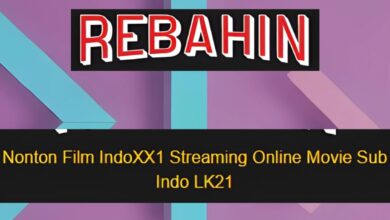Wordiply: How to Master The Guardian’s New Daily Word Game

Wordiply Language is a gateway to expression, connection, and understanding. The words we choose shape our thoughts, interactions, and perceptions. In today’s fast-paced world, a robust vocabulary is not just a tool for eloquence but a key to unlocking opportunities in various aspects of life. Enter Wordiply – a comprehensive approach to vocabulary expansion designed to empower individuals with the linguistic prowess they need to thrive.
Introduction to Wordiply
In a world where effective communication reigns supreme, Wordiply emerges as a beacon of linguistic enlightenment. But what exactly is Wordiply? At its core, Wordiply is more than just a method; it’s a philosophy – a commitment to continuous growth and learning. Unlike traditional vocabulary-building approaches that rely solely on rote memorization, Wordiply embraces a holistic strategy that combines active engagement, strategic exercises, and technological integration to enhance word mastery.
Why does vocabulary improvement matter? The answer lies in the profound impact it has on personal and professional success. A rich vocabulary empowers individuals to articulate ideas with clarity, persuasiveness, and nuance. Whether navigating academic pursuits, advancing in careers, or fostering meaningful relationships, a well-developed lexicon opens doors and propels individuals towards their goals.
Understanding Wordiply Methodology
Delving deeper into the essence of Wordiply reveals a methodology rooted in cognitive science and educational psychology. Central to Wordiply’s approach is the recognition that vocabulary acquisition is not a passive endeavor but an active process that requires deliberate practice and engagement. By leveraging principles of spaced repetition, associative learning, and multisensory integration, Wordiply transforms the task of learning new words into an enriching and enjoyable experience.
At its foundation, Wordiply emphasizes the importance of context in vocabulary acquisition. Rather than memorizing isolated words in isolation, learners are encouraged to engage with texts rich in diverse language patterns and usage contexts. Through active reading and attentive observation, learners develop an intuitive understanding of word meanings and usage nuances, fostering deeper connections that facilitate long-term retention.
Getting Started with Wordiply
Embarking on a Wordiply journey begins with setting clear goals and assessing one’s current vocabulary level. Whether aiming to expand general knowledge or targeting specific domains of expertise, establishing realistic objectives provides direction and motivation for the learning process. Self-assessment tools, such as vocabulary tests and proficiency benchmarks, offer valuable insights into existing strengths and areas for improvement, guiding learners towards tailored learning paths.
As learners set sail on their Wordiply voyage, they are encouraged to cultivate a growth mindset – an attitude characterized by resilience, curiosity, and a willingness to embrace challenges. Recognizing that vocabulary growth is a gradual and iterative process, learners are empowered to embrace setbacks as opportunities for learning and refinement. By fostering a culture of continuous improvement, Wordiply equips learners with the mindset and strategies needed to navigate the complexities of language acquisition with confidence and determination.
Wordiply Techniques and Strategies
Active Reading for Vocabulary Growth
At the heart of Wordiply’s methodology lies the transformative power of active reading. Unlike passive consumption, which involves merely skimming through texts, active reading requires deliberate engagement and critical reflection. By immersing oneself in rich and diverse literary works, learners expose themselves to a myriad of words, phrases, and idiomatic expressions, expanding their lexical repertoire with each page turned.
But active reading goes beyond mere exposure; it involves an active process of comprehension, analysis, and synthesis. Learners are encouraged to interact with texts on multiple levels, from deciphering meaning in context to identifying linguistic patterns and rhetorical devices. Through close reading and annotation, learners deepen their understanding of word meanings, usage nuances, and connotative associations, fostering a deeper appreciation for the intricacies of language.
In addition to traditional print media, digital platforms offer a wealth of opportunities for active reading. From online articles and blogs to e-books and interactive forums, the digital landscape abounds with resources for vocabulary enrichment. By leveraging tools such as digital dictionaries, annotation software, and language-learning apps, learners can enhance their reading experience and accelerate their vocabulary growth in the digital age.
Vocabulary Building Exercises
Beyond passive exposure, Wordiply incorporates a diverse array of vocabulary-building exercises designed to reinforce learning and promote retention. From word games and puzzles to flashcards and mnemonic devices, these exercises engage learners in interactive and dynamic ways, transforming the learning process into a stimulating and enjoyable endeavor.
One popular vocabulary-building exercise employed by Wordiply is the creation of word association networks. By connecting new words to familiar concepts and experiences, learners form cognitive links that facilitate recall and retrieval. Through visual mapping tools and brainstorming techniques, learners can visually represent the relationships between words, fostering a deeper understanding of semantic connections and linguistic patterns.
Another effective strategy employed by Wordiply is the use of mnemonic devices to aid in memorization. Mnemonics, or memory aids, leverage imagery, acronyms, and rhymes to encode information in a memorable and accessible format. Whether creating vivid mental images or crafting catchy phrases, learners can leverage mnemonics to enhance retention and recall, transforming seemingly abstract words into tangible and memorable constructs.
Wordiply’s Memorization Techniques
When it comes to vocabulary acquisition, repetition is key. Recognizing the importance of spaced repetition in memory formation, Wordiply incorporates strategic review sessions into its curriculum to reinforce learning and promote long-term retention. By spacing out practice sessions over time and gradually increasing the intervals between repetitions, learners optimize the efficiency of their study efforts, maximizing the likelihood of information retention.
But repetition alone is not enough; learners must also engage with words in meaningful and contextualized ways to solidify their understanding. Wordiply encourages learners to actively incorporate new words into their everyday language, whether through writing exercises, conversation practice, or creative expression. By using words in context, learners deepen their understanding of word meanings and usage nuances, transforming passive knowledge into active proficiency.
Leveraging Technology for Vocabulary Expansion
In today’s digital age, technology has revolutionized the way we learn and interact with language. Recognizing the potential of digital tools and resources in vocabulary acquisition, Wordiply embraces technology as a powerful ally in the quest for linguistic mastery. From interactive apps and multimedia resources to online communities and language-learning platforms, the digital landscape offers a myriad of opportunities for vocabulary enrichment and skill development.
One of the key advantages of technology-enabled learning is its accessibility and flexibility. With a plethora of language-learning apps and platforms available at their fingertips, learners can customize their learning experience to suit their individual preferences and learning styles. Whether seeking immersive language practice through interactive games and quizzes or engaging with multimedia content such as podcasts and videos, technology offers a wealth of resources for vocabulary expansion.
In addition to standalone language-learning apps, digital dictionaries and reference tools provide invaluable support for vocabulary acquisition. With features such as word pronunciation, usage examples, and contextual definitions, digital dictionaries offer learners instant access to comprehensive and up-to-date information, empowering them to deepen their understanding of word meanings and usage nuances with ease.
Wordiply in Practice: Real-Life Applications
Armed with a diverse arsenal of vocabulary-building techniques and strategies, learners are equipped to apply their newfound linguistic prowess in real-world contexts. Whether navigating academic pursuits, advancing in careers, or fostering meaningful relationships, a rich vocabulary opens doors and unlocks opportunities for personal and professional growth.



